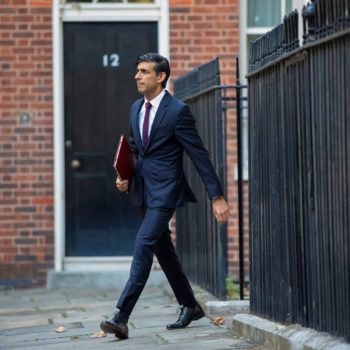The budget is one of the most powerful tools in the EU’s political arsenal. How and where the EU spends its resources is a key test of its priorities.
The EU needs a budget which reflects its future priorities, not its past political battles. Europe will not be able to safeguard its security and prosperity unless it realigns its spending with the challenges it faces. The EU budget needs to become more explicitly mission-oriented, focused and responsive.
Read the full report.
To achieve this, the mid-term review of the EU’s Multiannual Financial Framework (MFF) should focus on:
Ensuring that the EU budget delivers on climate spending
The MFF review should reiterate the target for 20% of the EU budget to be spent on climate-related activity, and refresh EU systems for ensuring this target is delivered by giving an honest accounting of its climate related spending and ensure that an adequate pipeline of low-carbon projects is delivered.
Stop counterproductive high-carbon spending
The EU budget – inexplicably – continues to fund projects at odds with EU climate and energy goals. Project selection processes should be reviewed for consistency with wider EU policy objectives. In the context of climate policy, this means phasing out all high-carbon spending.
Refocusing the European Fund for Strategic Investments
The EU is losing its competitive advantage in the clean energy economy as investment has fallen significantly. The European Fund for Strategic Investment has been an early success of the current MFF. Its mandate should be extended – but refocused on EU strategic priorities.
Delivering a fair low-carbon transition
For the EU’s approach on smart and sustainable growth to succeed, the social impact of the low-carbon transition must be taken into account. Establishing a dedicated Just Transition Fund could help achieve that.
Aligning Energy Union governance with the budgetary process
The infrastructure investments Europe needs can only come from a mix of public and private capital. The Energy Union governance framework can promote the long-term planning necessary to raise investor confidence – provided National Climate and Energy Plans are coherent and coupled with adequate financing strategies.
Enabling flexibility and responsiveness
The rigid MFF structure limits the ability of the EU budget to respond adequately to unexpected challenges. A misalignment between EU budget and political cycles exacerbates the situation. Greater responsiveness and flexibility is needed.
Read the full report – A mission-oriented budget: Priorities for the MFF mid-term review [PDF 1.5Mb]





